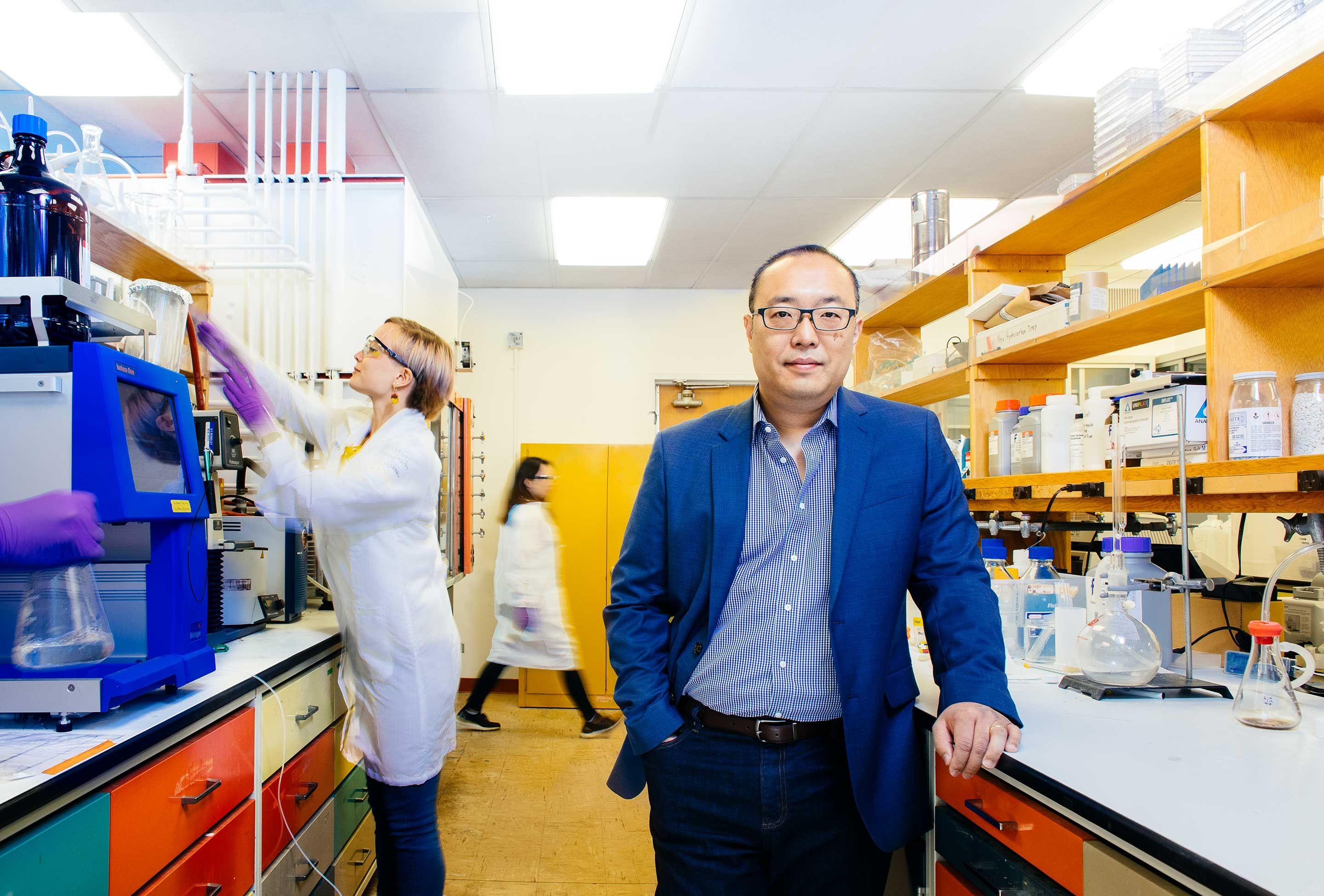An expert on 'undruggable' targets tackles the coronavirus

Throughout the grim reality of a global pandemic that has disrupted normal life for months, one persistent bright spot has been the robust response of the biomedical research community. The battle to develop vaccines and drugs to fight the SARS-CoV-2 virus and COVID-19, the disease which it causes, has highlighted the tremendous benefits of investing in science aimed at developing innovative research platforms and tools. When a new disease like COVID-19 arises, such platforms and tools developed for other purposes can be quickly pivoted to provide solutions to the emerging threat.
Professor Daniel Nomura, Professor of Chemical Biology of The University of California, Berkeley (UCB), is the perfect exemplar of this strategy. Nomura is a world-renowned expert in chemical biology whose research focuses on developing drugs that target proteins previously considered “undruggable” – proteins known to drive disease, but which do not contain the type of obvious binding pockets required for traditional drug discovery approaches. The Nomura lab has advanced and applied robust chemoproteomic platforms to identify chemical handles that can bind nearly any protein. In 2018 and 2020, Nomura received two ASPIRE awards from The Mark Foundation to support the development of this technology and its application to essential cancer proteins. The enormous potential impact of this approach is highlighted by a recent publication(link is external) from the Nomura lab in which they identify a specific covalent ligand for one of the most sought-after cancer targets, the oncoprotein MYC.
When the SARS-CoV-2 crisis hit, Nomura immediately saw the potential to apply chemoproteomics platforms to kickstart the hunt for new drugs. His research group quickly focused on the virus’s MPro protease, which is essential for processing polypeptides encoded by the viral RNA. The MPro protease contains a catalytic cysteine residue that is an ideal attack point for Nomura’s library of cysteine-reactive compounds. Excitingly, MPro is highly conserved across the coronavirus family, raising hopes that an MPro inhibitor could serve as a pan-coronavirus therapy, even for currently unknown virus family members. Protease inhibition is a proven anti-viral strategy for diseases including HIV and hepatitis C, and SARS-CoV-2 may prove to be similarly susceptible.
As the pandemic gathered steam in the spring of 2020, all non-essential research operations were suspended at institutions across the world, including at Berkeley. Research on SARS-CoV-2 was one of the few exceptions permitted to continue. Five members of the Nomura lab, who had previously been working on cancer research projects, volunteered to switch their efforts to the new SARS-CoV-2 MPro screen. Working in nearly empty campus buildings and labs with full PPE and staying distanced from their colleagues, these dedicated researchers put in long hours to advance the work as quickly as possible.
In a truly Herculean effort, the team synthesized hundreds of compounds and identified several potent inhibitors. Nomura had previously established a collaboration with pharmaceutical company Novartis, serving as the Director of the Novartis-Berkeley Center for Proteomics and Chemistry Technologies. This relationship dramatically accelerated the path forward for hits from the SARS-CoV-2 screen. Novartis is now working with Nomura and Professor Dean Toste of UCB’s Department of Chemistry to test the inhibitors for their anti-viral activity in cell lines and animal models and to optimize their potency and metabolic stability with the goal of producing an oral pan-coronavirus inhibitor.
Even with the promise of vaccines on the horizon, anti-viral drugs are still an important component of our arsenal, as vaccines are unlikely to be 100% effective, and immunity may wane over time. The road ahead is long, as developing and getting approval for a novel drug is likely to take several years. But the Nomura lab’s dedication to tackling tough biomedical challenges with their drug discovery platform has likely shortened this timeframe considerably. Funding for fundamental research and platforms can have an impact in unpredictable ways, as we’ve also seen with the organoids developed by Jeroen Roose, the blood-based biomarkers under investigation by Jim Heath, and the interactome/drug repurposing efforts led by Kevan Shokat(link is external). Both cancer patients and those sickened by SARS-CoV-2 will eventually reap the benefit of these heroic efforts.
